Entropic Realism and ‘The Road’
The following contains unmarked spoilers for Cormac McCarthy’s The Road and its film adaptation. Be on your guard!
He stood listening. The boy didnt stir. He sat beside him and stroked his pale and tangled hair. Golden chalice, good to house a god. Please dont tell me how the story ends.
—Cormac McCarthy, The Road, p. 75
From the earliest pages of The Road it is clear that we are reading the most bleakly nihilistic novel ever to grace Oprah’s Book Club. Set after an unspecified apocalypse in a ruined world populated by thieves, murderers, cannibals, a man, and his son, in which the main character’s primary inner conflict revolves around whether or not he will have the fortitude to use his gun’s last remaining bullet on his son “when the time comes” (29), The Road winds its doomed characters and traumatized readers on a path through the Cumberland Gap towards the East Coast in a kind of reverse Western Migration, in which the final destination offers neither hope nor opportunity, just dead, stagnant water, not even blue (215). When they reach the coast, it isn’t long before the father dies of the illness from which he has been suffering throughout the novel, leaving the boy completely alone in a ruined, evil world. (The father, in the end, couldn’t bring himself to murder his son before dying after all.)
Up until this moment the novel is perhaps American literature’s best example of what I call entropic realism: the ideology of apocalypse, of breakdown, of things falling apart. Entropic realism is the literary-aesthetic positionality appropriate to depressive nihilism, when God’s being dead means not “anything is possible” but “nothing matters” and “there is no hope.”
Up until this moment. But now The Road throws its reader a curveball. The boy stays beside his father’s corpse for three days, and then walks about twenty feet before discovering a substitute father accompanied by a replacement mother and two ersatz siblings who happily take the boy in and provide for his well-being from then on. The end.
This second father, and the quasi-happy ending his unexpected appearance represents, appears completely out of nowhere, both narratively and thematically. There is nothing in the book before the last six pages that suggests any sort of non-disastrous resolution to this story is possible, nothing in the world McCarthy makes that gives us license for this sort of hope. That the man would die, and that his son would be better off dead than alive without him, are both framed as inevitable, as the only possible ending for the story despite any desire that it be otherwise. True to its entropic realism, in The Road all stories end in failure and death; see, by way of example, meditations on this pessimism on 153-154, 168-169, 242-243, and elsewhere. (Please, don’t tell me how the story ends.)
The book hammers home, time and again, that such things as “trust,” “kindness,” and “happy endings” are artifacts of a dead world that is never to return, and any hope they might is just a fairy tale, a dream:
In his dream she was sick and he cared for her. The dream bore the look of sacrifice but he thought differently. He did not take care of her and she died alone somewhere in the dark and there is no other dream nor other waking world and there is no other tale to tell. (32)
I went to see the film last week specifically to see how this ending was played cinematically, and I can confirm it is played entirely straight: the substitute father appears out of nowhere twenty feet away, emerging not three days but seemingly three minutes after the first father has died. The end.
There is, I argue, something necessarily unsatisfying about this ending for nearly any reader of The Road. It just doesn’t make sense, doesn’t fit; it doesn’t seem “realistic.” Just where has this new family come from? How have they survived, intact and apparently secure, all this time? Why have we never seen any hint, before p. 281, that any such people yet remained alive?
The strange improbability of the ending has suggested to many readers that The Road is a book about faith being rewarded, a book, indeed, about miracles—if not a book about the literal Tribulation described in the book of Revelation. The father’s last recorded words suggest this sort of redemptive religious possibility: “Goodness will find the little boy. It always has. It will again” (281). In spite of everything, I still believe that people are really good at heart.
But I would frame my reading of The Road differently. I think the ending is a kind of dare, or leap of faith, or perhaps even a sort of literary Rorschach test. After everything you have seen, can you let yourself believe a happy ending is actually possible? Can you, as they say, buy this?
The possibility that we can’t is repeatedly thematized throughout the novel. The boy is preoccupied with narratives and the problem of their realism, particularly by the growing sense he has that the actions he and his father take, and the world in which they live, do not comport with the moral fables about “good guys” and “bad guys” on which he has been raised. In one of the last lengthy conversations he has with his father this comes out explicitly:
Do you want me to tell you a story?
No.
Why not?
The boy looked at him and looked away.
Why not?
Those stories are not true.
They dont have to be true. They’re stories.
Yes. But in the stories we’re always helping people and we dont help people.
Why dont you tell me a story?
I dont want to.
Okay.
I dont have any stories to tell.
You could tell me a story about yourself.
You already know all the stories about me. You were there.
You have stories inside that I dont know about.
You mean like dreams?
Like dreams. Or just things that you think about.
Yeah, but stories are supposed to be happy.
They dont have to be.
You always tell happy stories.
You dont have any happy ones?
They’re more like real life.
But my stories are not.
Your stories are not. No. (267-268)
In these terms, of course, the ending of The Road, while “happy,” is plainly not “true”; it fulfills the structural requirement that “stories are supposed to be happy” at the cost of its own realist coherence. In its final six pages The Road unexpectedly abandons its relentless entropic realism and becomes more like a fable or dream—both words that appear on the novel’s first page, and which, especially in the case of dreams, are central preoccupation of the characters throughout.
Page 9:
He said the right dreams for a man in peril were dreams of peril and all else was the call of languor and of death.
Page 21:
And the dreams so rich in color. How else would death call you?
Page 189:
When your dreams are of some world that never was or of some world that will never be and you are happy again then you will have given up.
Page 269, just after the part of the conversation quoted at length above:
(the boy speaking) I dont have good dreams anyway. They’re always about something bad happening. You said that was okay because good dreams are not a good sign.
To accept the book’s uncomplicatedly happy ending at face value would be to ignore everything we have seen thus far, including, in the pages before the declaration that good will always win in the end, these repeated assertions that such moral fables are lies that will only make you weak. To believe in happy endings, in this particular happy ending, is therefore in the book’s terms to be seduced by what is not real, potentially at the cost of your life. If we take seriously the way the text opposes both dreams and stories against the one-way entropic directionality of “real life,” the apparent happy ending therefore becomes a deeply problematic structural excess: a miraculous suspension of the novel’s own basic law of nature.
But other sorts of readings do present themselves. Instead of accepting that The Road ends happily, despite its own self-prophesy, we can reject the apparent happy ending and conclude (for instance) that everything that happens after p. 281 is merely the father’s interior dream as he dies.
Now, this is so dramatic a manipulation of the text’s surface meaning as to be fairly described as willful misreading. I was first exposed to this alternative ending by my mother, who considered it the plain meaning of the novel until I told her most people don’t actually read the book that way. But as I reread The Road to write this post I found more and more evidence of this possibility staring me in the face: why else, we might well wonder, is the novel so preoccupied with the father’s belief that a man close to death has happy dreams? And when I’ve brought this reading of the novel up at academic conferences I’ve seen the same reaction in others: a sense that this reading may in some sense be better than that the straight one, that it alone accounts for the novel as a totality.
Now of course I don’t actually believe in the dream ending either. This is a fan rewrite, something akin to The Phantom Edit. I certainly don’t think it’s what Cormac McCarthy “intended”—though, with so many references to dreams, death, and the problem of endings, who can say? Rather, I perform this self-conscious misreading as a way of making clear that at the end of the novel The Road is divided against itself: it becomes a site of indeterminacy hovering between two possible end states, almost like a thought experiment out of quantum mechanics. The boy is simultaneously rescued (and we happy, if naive) and doomed (and we sad, but wise); the boy is both at once, suspended permanently in a zone of interpretive indecision.
It seems impossible not to choose one or the other, but I think the novel may be best if we decline; that very indecision, the impossible demand that an ending somehow be both “happy” and “realistic” at the same time, is itself the novel’s crux.
The Road, in essence, provides us with a happy ending we cannot believe and sadder endings we do not want to accept, and dares us to choose between them. In this way I think The Road is best read as a deconstruction of the evaluative terms by which we normally judge stories—a refusal, that is, of the very possibility of narrative closure altogether. Midway through the book the usual flow of narration suddenly breaks to assert this very point directly:
Do you think that your fathers are watching? That they weigh you in their ledgerbook? Against what? There is no book and your fathers are dead in the ground. (196)
Life, would that it were otherwise, is not a story. In its ending The Road embodies the conflict between the ordered teleology of story and the disordered antinarrative of life as it must actually be lived. The entropic realism of the text is necessarily in irreconcilable tension with its own miraculous ending; we simply can’t have both. Please, the novel seems to say to us, and we to it: don’t tell me how the story ends.


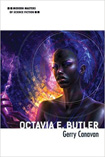

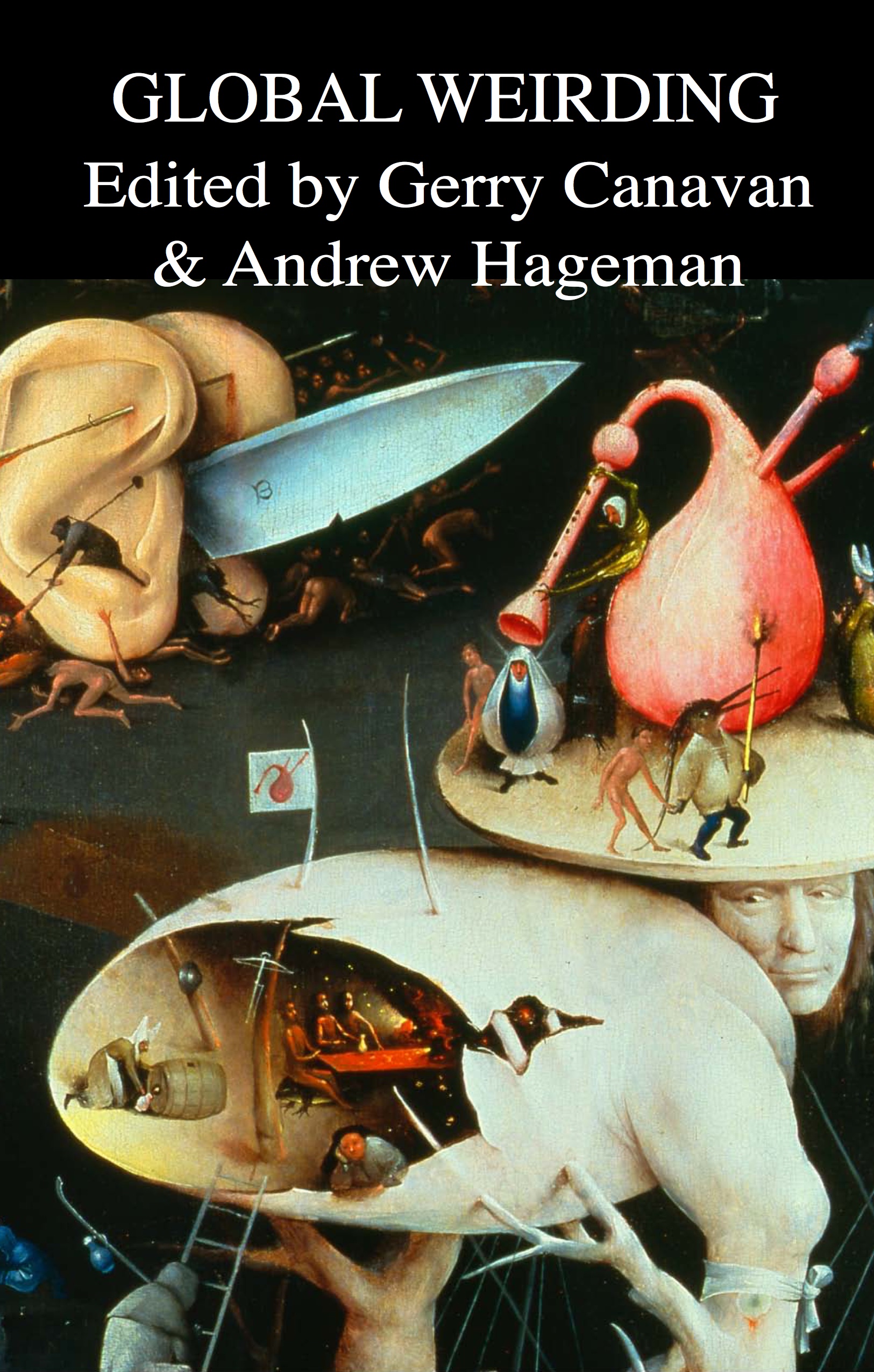
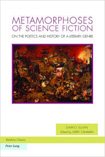
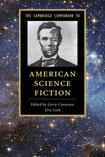

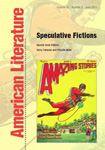

Thanks for this – I’m teaching THE ROAD this semester as part of my course Postmodernist Fiction: Tales of the Apocalypse, and this piece will certainly help start up some discussion.
Dan
January 7, 2010 at 10:54 am
I’d be really interested in how your students take the ending, as well as if any of them take my mother’s approach without being told about it in advance…
gerrycanavan
January 7, 2010 at 10:57 am
I just read this novel a few weeks ago and I felt cheated by the end of the novel, too. What are we supposed to believe–that the son joins this new family and that they somehow work together to reboot civilization? The world is dead. Nothing grows. At best we can hope that this kid lives for another, what, decade, scrounging for canned vegetables before they turn? It’s an unbelievable cheat, and a cynical one at that.
Tim
January 7, 2010 at 11:01 am
Plus he totally gets to marry their daughter eventually.
gerrycanavan
January 7, 2010 at 11:05 am
I cut this bit because the post was too long already, but I think there actually is a *little* bit of textual evidence that we’re not supposed to take the ending altogether seriously. I’ll leave it here as the blog equivalent of a deleted scene:
First, on the level of craft, the just-a-dream ending prevents what would otherwise be a radical perspective shift (from the father to the boy) six pages from the end of the novel—a disjunctive leap that the book’s narrative structure, so intimately tied to the raw and damaged inner monologue of the father, would have great difficulty making. If the novel spends 281 pages in third person close point of view, within the father’s thoughts, then from the standpoint of traditional literary craft we can’t spend the last six pages of the novel someplace else.
The “just a dream” reading also accounts for two specific unusual features of the novel’s final pages. First we have the novel’s first and only time-skip, which occurs on the second to last page:
Here we have, for the first time in the novel, a temporal shift out of the novel’s “present” into a future. The third sentences of this paragraph uses the imperfect tense (“She would talk to himsometimes about God”) to describe events that take place long after the events of the first two sentences and, which thereby catapult us away from the present action line of the story into an unspecified future time and unknown narratological perspective—a singular moment in a text that is otherwise plotted linearly along a single continuous present. This happens, under the dream reading, because the father is now beginning to slip finally away.
In the next paragraph, the strange final paragraph, we abandon this odd new temporality in favor of a return to the father’s sensibility and diction, and indeed, his memories:
Somehow the novel’s original voice has managed to impossibly survive the character to whom this language was previously bound—unless, that is, we have simply remained in the character’s head as he expires, in which case there is nothing to explain…
gerrycanavan
January 7, 2010 at 11:06 am
In McCarthy’s first draft, Journey’s “Don’t Stop Believin'” is playing during the last scene.
Christ, I Need A Drink
January 7, 2010 at 11:10 am
did you lecture us about this same stuff after we read it for class? i can’t actually remember a single bit of the discussion.
Kate
January 7, 2010 at 12:05 pm
Ha, no, we basically ran out of time and I quietly cut The Road from the syllabus to give more time to the short stories. I think we only got about 100 pages in.
gerrycanavan
January 7, 2010 at 12:07 pm
I have to disagree with the concept of the ending as “happy”. Nor would I say it’s particularly pessimistic (any more so than the rather bleak worldview that holds throughout). “Of a thing which could not be put back. Not be made right again.”…Hardly bodes better times ahead.
This kind of “happy” ending has a great deal of precedent:
Lord of the Flies- the children are saved…but by sailors engaged in the same kind of war the children were just fighting.
Heart of Darkness- Kurtz is dead and his fiancee is spared from the “horror” of the truth. Only to find Marlow sailing down the Thames into another “heart of darkness”.
The Plague- As the plague recedes and the townspeople celebrate: “Yes, the old fellow had been right; these people were “just the same as ever.” But this was once their strength and their innocence…Nonetheless, he knew that the tale he had to tell could not be one of final victory. It could be only the record of what had had to be done, and what assuredly would have to be done again in the never ending fight against terror and its relentless onslaughts. . He knew what those jubilant crowds did not know but could have learned from books: that the plague bacillus never dies or disappears for good…”
Seems to me that most of McCarthy’s novels have a sort of terrible, Godless existence, but families bond and keep moving through because that’s just what people have to do.
Jared
January 7, 2010 at 1:46 pm
It’s true that using “happy” is speaking rather broadly, but I think we’re supposed to take it more or less in that mode. We have the child (who never really knew his mother and who longs for siblings) finding a family with both (that doesn’t want to kill him), and apparently living with them for a long time afterwards (as suggested by the shift to the imperfect tense in the second-to-last paragraph). Given that the only alternative to this ending presented in the text is a grisly murder-suicide, wouldn’t you call the ending “happy,” or at least happier?
gerrycanavan
January 7, 2010 at 2:20 pm
Am I the only one who saw a Christ allegory in the book? It has been two years or so since I read it, but I remember scenes in which the father sees the boys head surrounded by a halo of light. The boy is good and compassionate, and the man desire to see the boy survive until they reach the sea seems motivated by more than just fatherly love. And the boy gets up and finds the other family after three days. (I am new here so if I have stumbled ignorantly into already chartered waters, forgive me.)
Chuchi
January 7, 2010 at 4:23 pm
In McCarthy’s first draft, Journey’s “Don’t Stop Believin’” is playing during the last scene.
I like this.
Shankar D
January 7, 2010 at 4:55 pm
I feel that this reading has conflated the author’s voice with the father’s. The ending symbolizes the old order, which caused the world’s destruction and is represented by the father, dying away and leaving the boy to pursue a different future, the sort of future in which people help each other. Don’t forget that the boy is altruistic, while the father is distrusting and violent. It is the father who says good dreams are bad, not the author. The ending is about abandoning old, stagnant and crippling ways of thinking.
Claire
June 27, 2013 at 1:55 pm
That’s definitely the optimistic take (and the one I focus on with my students). But this other possibility still gnaws at me; the father’s voice is so dominating in the narrative that it’s hard to imagine the world outside the terms in which he sees it. The idea of a “happy ending” seems like precisely the sort of optimism he’d warned us against earlier.
Thanks for commenting!
gerrycanavan
June 27, 2013 at 2:25 pm
Fairly old discussion there lol…but,I am glad I’ve stumbled onto it.
I remember being surprised when I realized that anybody would consider the ending to be anything but the father’s dying daydream of sorts (that trout!),and the final shot in the “to be,or not to be” battle that,IMO, The Road is all about-the father vs. his dead wife,a.c.a. the voice of his conscience-and finally,vs. his god-like son as well.
By the time the boy shares his desire “to be with his mom”-i.e. to die-and his previously patient father,uncharacteristically,sternly forbids any such talk-we are well aware what side McCarthy is on.We observe the very last vestiges of hope slowly disappear,and the father turn into another desperate,vicious beast in the fight to prolong the boy’s suffering just a little bit more. Their last conversation-with the father admission that he simply can’t face seeing his dead child in his arms,while still trying to deny the reality,and rationalizing his obvious (to the author at least) selfishness even in his dying dream-was the final nail…
None of this sounds nice,but then,it’s Cormac McCarthy we are talking about. Good God Almighty…
Jess
January 16, 2016 at 7:53 pm
Hey can you please tell me about the objectives that must be related to deconstructive violence in McCarthy’s novel The Road.
qiraat saqib
March 12, 2016 at 9:17 am
Maybe I can help, but can you say more about what you’re asking about? I’m not sure I understand the question.
gerrycanavan
March 12, 2016 at 9:24 am